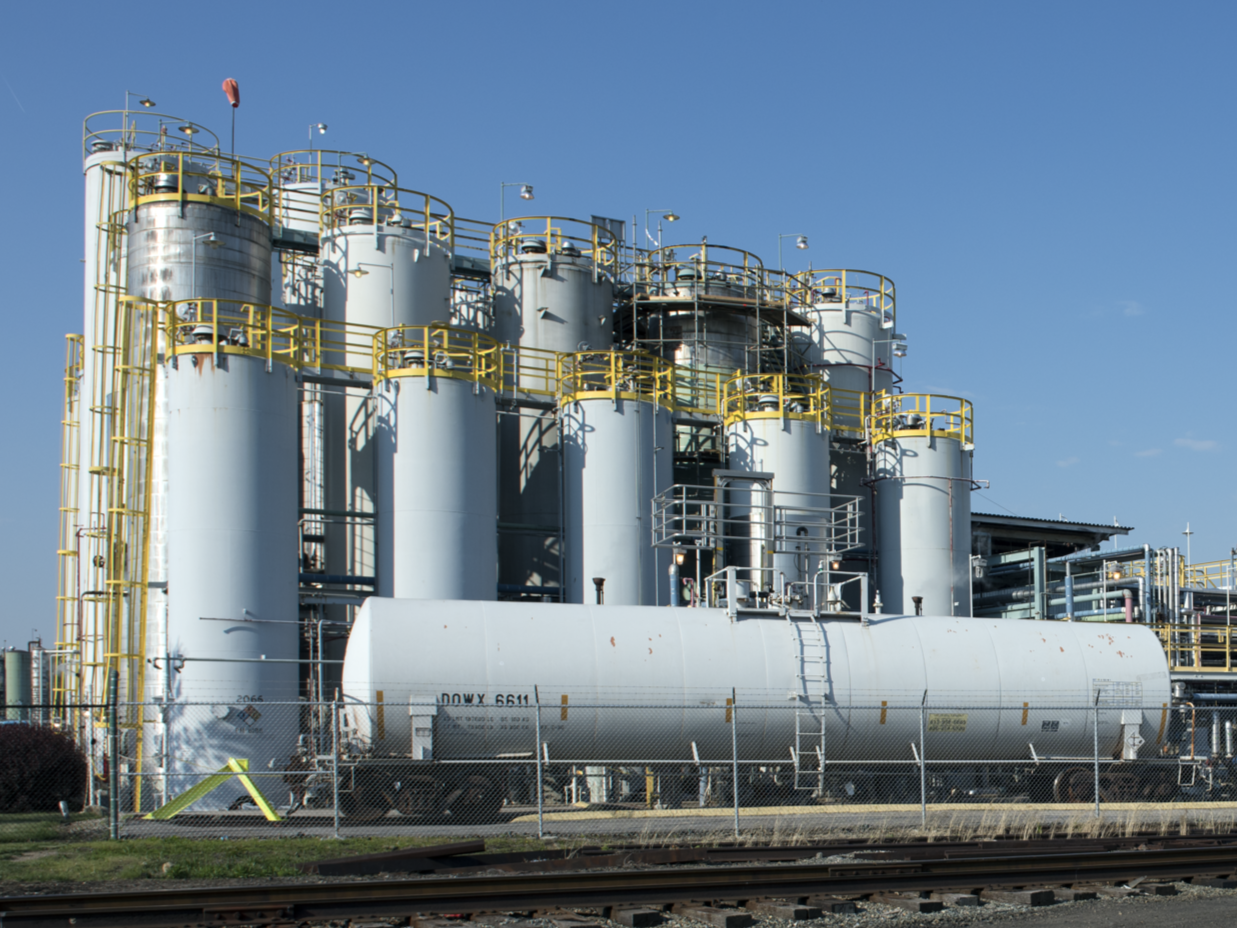Updated on Wednesday, October 23 at 10:10 a.m.
Nearly 80 employees at a Kanawha County chemical plant have gone on strike over pay and benefits concerns.
Workers at the South Charleston Manufacturing Site Plant voted to strike Monday, according to a press release from the International Association of Machinists and Aerospace Workers (IAM). The South Charleston-based IAM Local 598 chapter represents workers on site.
The chemical plant is operated by Union Carbide Corporation, a subsidiary of the Dow Chemical Company. Union Carbide was obtained by the multinational corporation in 2001, according to its website.
The union members’ previous contracts expired Sunday. Then, 77 IAM members began striking “to secure fair wages and protect their right to holidays and vacations as part of their benefits package,” according to a Monday statement from IAM District 54 President and Directing Business Representative T. Dean Wright Jr.
Wright’s district represents members in Ohio, West Virginia and northeastern Indiana. IAM represents roughly 600,000 members across different industries nationally, according to the union’s website.
Photo Credit: Emily Rice/West Virginia Public Broadcasting
“Our members working at Dow Chemical perform dangerous jobs that demand appropriate compensation and respect for their labor,” Wright continued in a Monday IAM press release. “They are simply asking for what is fair — recognition of the value they bring to the company.”
A media representative from Union Carbide wrote in an email to West Virginia Public Broadcasting that the company is actively meeting with union representatives “to conduct a productive and fair negotiation.”
“We are committed to continuing these discussions in good faith and are hopeful that we will reach a resolution soon,” they wrote. “Union Carbide Corporation remains committed to offering a competitive total rewards package, which includes fair wages and adequate holiday and vacation days. Our goal in these negotiations has always been to reach a mutually beneficial agreement that supports both our employees’ well-being and the company’s operational needs.”
Meanwhile, the representative said Union Carbide is “confident” it will be able to continue safely operating the site during the strike.
Representatives from Dow Chemical did not respond to phone call or email requests for comment from West Virginia Public Broadcasting.
IAM and its local South Charleston chapter also did not respond to email or phone call requests for further comment. Strikers at the South Charleston facility declined to provide a comment to West Virginia Public Broadcasting Tuesday.
Emily Rice contributed reporting to this story.
**Editor’s Note: This story was updated to include a written statement from Union Carbide Corporation, which was emailed to West Virginia Public Broadcasting after publication on Tuesday, Oct. 22.
